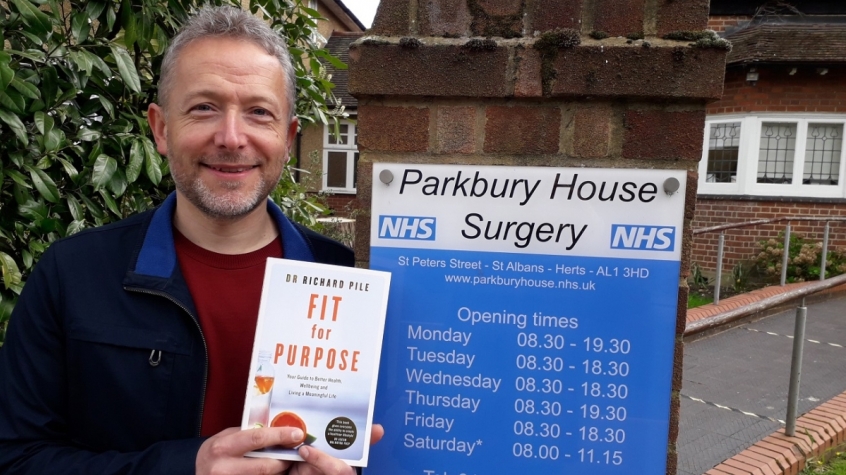
When was the last time you heard a church leader preach about sleep? Or about eating well, exercise, coping with stress or living a life rich with relationships?
How far do your church leaders model good health and wellbeing in the way the church is run and the example they set for the congregation? And how often do they teach about living well?
These challenges are posed by experienced general practitioner and Christian, Dr Richard Pile, in a newly-published book that aims to bridge the gap between health and faith.
In 'Fit for Purpose,' (HarperInspire), he declares, "I believe for us to feel truly well, to fulfil our potential and live satisfying and meaningful lives, there should not be an artificial divide between physical and mental and spiritual wellbeing."
The British doctor has more than 20 years' experience in general practice, dealing with a wide range of patients with every surgery he holds – including working throughout the Covid-19 pandemic.
He calls on church leaders to take seriously the health of their congregations and the people they seek to serve. They should create a culture where living well is encouraged and modelled.
He says, "If someone tells me that they have lots of spiritual gifts – such as prophecy, discernment or speaking in tongues – but their physical and mental health, their relationships, their career or finances are a disaster, I would question whether they truly understand what wellbeing really means, and whether they've got the balance right."
In his book, Dr Pile sets out what the Bible says about sleep, food, exercise, coping with stress, having strong social connections and living with meaning, and challenges the Church to take these teachings seriously.
He believes this could have a positive impact on a church's influence and outreach in its community.
He says, "Crowds followed Jesus because they were hungry, physically and spiritually. He didn't have to drum up trade. They saw in him someone who could offer them hope and meet their needs. If one of the purposes of your church is to serve your community, how is this best done where you live?"
Based on his experience in general practice, Dr Pile challenges other health professionals to recognise the benefits of good 'spiritual health', often derived from belonging to churches or other faith communities.
These health benefits, he says, frequently arise from living a life with purpose and being connected to a wide circle of people.
Dr Pile explains: "As a society we have never had so much advantage and yet been so disadvantaged by this very same society which we have built for ourselves. We are ignoring our basic needs when it comes to sleep, nutrition, movement, relaxation, relationships and purpose in life.
"We face a rising tide of physical health problems, such as obesity and diabetes, and mental health issues such as loneliness and depression.
"Our medical model is a broken, disease-based one which is not fit to meet our needs, particularly when it comes to preventing health and wellbeing problems."
Using his knowledge of medicine, behavioural change and the Christian faith, Richard Pile responds to these challenges with real-life case studies and practical recommendations for change – as individuals, in churches, and across wider society.
It's a call that church leaders will do well to heed if we are to preach – and model – a message of "life in all its fulness" to our congregations, and to the communities we seek to serve.
Rev Peter Crumpler is a Church of England priest in Hertfordshire, England, and the author of 'Responding to Post-truth' (Grove Books).













